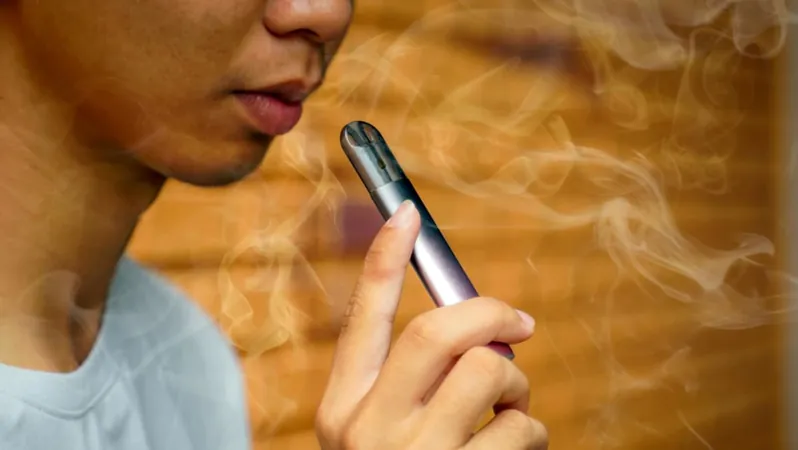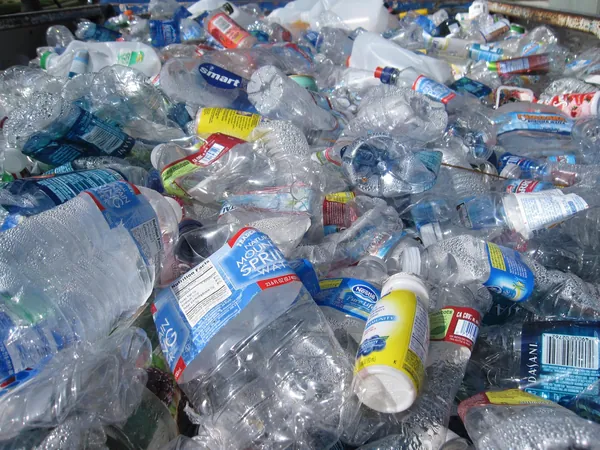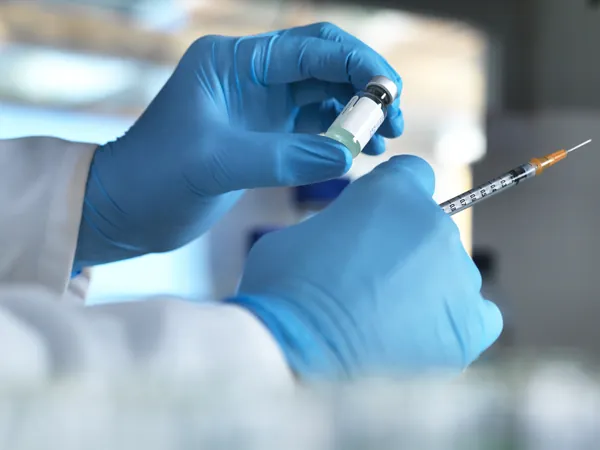
Shocking New Vaping Rules in Singapore Schools Leave Parents and Students in Dismay
2025-09-01
Author: Jia
In a surprising move, Singapore's government has unveiled stringent measures to combat vaping in schools, leaving both parents and students astounded by the sudden severity of the regulations.
Father-of-two Aylwin Lam expressed his dismay: "My initial reaction to the introduction of nicotine test kits and metal detectors was one of shock and sadness. It’s heartbreaking that we've reached a point where such extreme measures are needed." He lamented that schools now resemble high-security zones rather than safe learning environments.
Rising Vaping Cases Spark Urgent Action
The Ministry of Education (MOE) reported a dramatic surge in vaping incidents, with schools recording an alarming average of 3,100 cases each year from 2022 to 2024, compared to fewer than 50 annually before 2020. As a response, approximately 260 schools have received nicotine test kits, and some have introduced metal detectors. Moreover, a 'peer vigilance culture' has been promoted where students are encouraged to report those who vape.
However, Lam, whose children are aged 13 and 11, noted that his kids have yet to encounter anyone vaping at school. He questioned the effectiveness of these new measures, emphasizing that they only treat the symptoms, not the underlying issues like targeted marketing and peer pressure.
Strict Penalties Await Rule-Breakers
Education Minister Desmond Lee outlined the consequences for those caught vaping, including detention, suspensions, and even caning for serious offenders. Repeated violations could lead to more severe actions, such as expulsion from several programs in institutes of higher learning.
Despite this, parents remain skeptical about the enforcement being adequate. Aaron Koh, whose son attends the Institute of Technical Education, pointed out how accessible vapes are online. He warned, "Telling my son that vaping is as bad as smoking is crucial, given that there's uncertainty about what they're actually inhaling." Koh stressed that enforcement might inadvertently drive students to be more secretive about their habits.
Students Uncertain About Reporting Friends
Students themselves are grappling with these new regulations. Secondary 3 student Bidelia Lai stated she would hesitate to report friends for vaping. She believes that rather than stopping peers, tougher rules will simply encourage smarter hiding tactics.
Conversely, some students are noticing changes. Lucas Chung, a Secondary 1 student, shared that after seeing peers punished, some friends have opted to quit vaping. He acknowledges the risks but avoids confrontations about the habit to dodge awkwardness.
A Mixed Response to New Measures
The announcements have sparked mixed reactions. Dyuthi Bhatt, a 14-year-old student, was caught off guard, stating, "I expected such measures in high-security places, not schools." Yet, she recognizes the severity of the vaping issue.
Ultimately, the effectiveness of these tough new measures remains to be seen. Will they deter students from vaping? Or will they merely push the problem underground? As vaping continues to be a concern among the youth, parents and educators may need to reconsider their tactics, focusing more on education and support rather than solely punitive actions.




 Brasil (PT)
Brasil (PT)
 Canada (EN)
Canada (EN)
 Chile (ES)
Chile (ES)
 Česko (CS)
Česko (CS)
 대한민국 (KO)
대한민국 (KO)
 España (ES)
España (ES)
 France (FR)
France (FR)
 Hong Kong (EN)
Hong Kong (EN)
 Italia (IT)
Italia (IT)
 日本 (JA)
日本 (JA)
 Magyarország (HU)
Magyarország (HU)
 Norge (NO)
Norge (NO)
 Polska (PL)
Polska (PL)
 Schweiz (DE)
Schweiz (DE)
 Singapore (EN)
Singapore (EN)
 Sverige (SV)
Sverige (SV)
 Suomi (FI)
Suomi (FI)
 Türkiye (TR)
Türkiye (TR)
 الإمارات العربية المتحدة (AR)
الإمارات العربية المتحدة (AR)